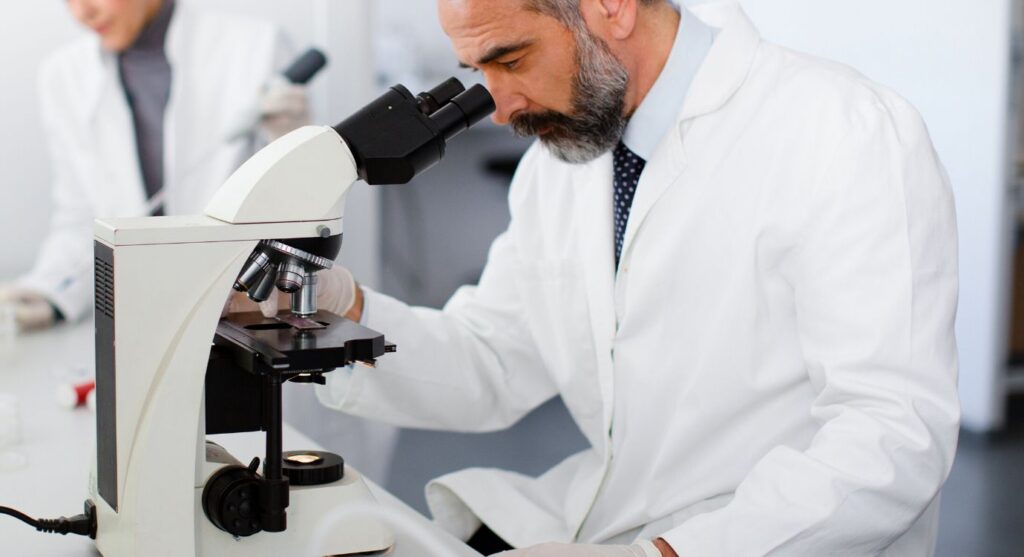Free delivery on all orders over £45
Free delivery on all orders over £45

Medically reviewed by
As CBD oil is still relatively new to the market, it’s entirely rational that many of us will approach the supplement with a reasonable degree of caution.
Studies around CBD are ongoing. And when a new research team releases any data, the press is often quick to jump to conclusions (possibly because of the enduring stigma attached to the cannabis plant and its derivatives).
So when a recent study in mice found that CBD could cause liver damage – newspapers went ballistic.
But is CBD oil bad for your liver?
Luckily for us CBD lovers, it looks like the idea that CBD could cause liver damage – and the way this study has been reported and interpreted – amount to little more than alarmist clickbait.
Let’s investigate…
CBD oil is a non-psychoactive supplement extracted from the cannabis plant.
CBD is a compound known as a cannabinoid, capable of interacting with the human endocannabinoid system.
CBD oil is often taken as oral drops under the tongue. It is absorbed into the bloodstream through the small blood vessels in the mucous membranes. The rest is swallowed, digested and eventually broken down and filtered out by the liver.
The liver is a multitasking organ with more than 500 different functions. It’s involved in everything from storing energy to cleaning toxins from the blood.
The liver is also responsible for maintaining balance throughout the body by regulating chemical levels in the blood.
We know many things can damage the liver, including a high-fat diet, too much sugar, overuse of pain medications and even high doses of vitamins, including vitamin A.
But should CBD be included in this list?
We know that the liver is the final stop on CBD oil’s journey through your body, and CBD does inhibit some of the liver enzymes necessary for the metabolisation of some medication – but does CBD harm the liver?
Read more: Will CBD interact with medication?
Let’s take a peek at the science.
The study at the heart of the CBD and liver damage controversy appeared in the Molecules Journal in April 2019.
The study aimed to determine if CBD extracts cause damage to the liver – in high concentrations. Remember this element, as it’s important.
The study was split into two parts.
The acute toxicity group was given either 0, 246, 738, or 2460 mg/kg of CBD per day for ten days. The sub-acute toxicity group was given either 0, 61.5, 184.5, or 615 mg/kg of CBD per day for the same period.
Within 24 hours, the mice that received the highest doses of CBD showed liver damage.
In the sub-acute toxicity group, 75% of those that received 615 mg/kg died within three days.
The study’s conclusion?
“The involvement of numerous pathways associated with lipid and xenobiotic metabolism raises serious concerns about potential drug interactions as well as the safety of CBD.”
This naturally led to fear within the CBD community that the supplement might not be safe.
So, how worried should we be?
The first thing to note about the study is that the CBD doses studied were exceptionally high. According to the Food Standards Agency, healthy adults should not exceed more than 70mg of CBD daily.
The study was intended to look at the liver toxicity level of CBD to determine if there is potential for an overdose.
Read more: Can you overdose on CBD?
If you go to your local pharmacy for pain medication like paracetamol or ibuprofen, you’ll be given a large leaflet with instructions explaining how to take it.
You will also see a warning that will state not to exceed a certain number of daily doses. It’s accepted that paracetamol is safe, as long as you don’t take too much of it.
And CBD products should be treated in the exact same way. Unless the recommended maximum doses are massively exceeded, there’s no evidence to suggest that CBD is bad for your liver.

There haven’t been any studies – or anecdotal evidence – to indicate that CBD leads to side effects that impact the liver, as long as CBD is consumed at recommended dosages.
So, what is the recommended CBD dosage?
Everyone is different, so we always recommend starting low, going slow, and finding a dosage that works for your body.
Read more: How to take CBD oil
We probably sound like a stuck record at this point!
But no, CBD does not cause liver damage – so long as maximum dosage guidelines are adhered to.
In fact, some studies indicate the opposite – preliminary research points to CBD actually helping to improve and restore liver function.
10% off on your first order
Complete this one-minute quiz and find the right products for you.
The World Health Organisation has determined that CBD has a good safety profile and is well-tolerated by most people.
And we can with certainty say that CBD is safe for the liver.
But, since CBD has not been studied to the same extent as drugs such as ibuprofen or paracetamol, it’s down to individuals to take responsibility for how they use CBD.
Some types of CBD have a higher potential to be dangerous to your liver than others. For example, any CBD that is marketed as water-soluble CBD may be produced using a method called nanoemulsion.
Research into the impact of nanoemulsion on the human body is incredibly limited – so we’d advise to stay away from these products if you’re looking to take precautions.
As long as you aren’t drinking CBD oil like you would pints of water, there’s nothing to indicate that CBD will hurt your liver.
Stick to recommended dosages. If you’re ever concerned, speak with a medical professional.
While an increase in research into CBD is always welcomed, all studies should be considered based on their individual merit. The media’s propensity for a good clickbait story can often overshadow reality – which in this case is that CBD is generally a very safe supplement.
Sign up for the Evopure newsletter:
This product is not for use by or sale to persons under the age of 18. It should not be used if you are pregnant or nursing. Consult with a physician before use if you have a serious medical condition or use prescription medications. A Doctor’s advice should be sought before using this and any supplemental dietary product. This product is not intended to diagnose, treat, cure or prevent any disease.
© Evopure Ltd. All rights reserved Terms & Conditions Cookie Policy Sitemap